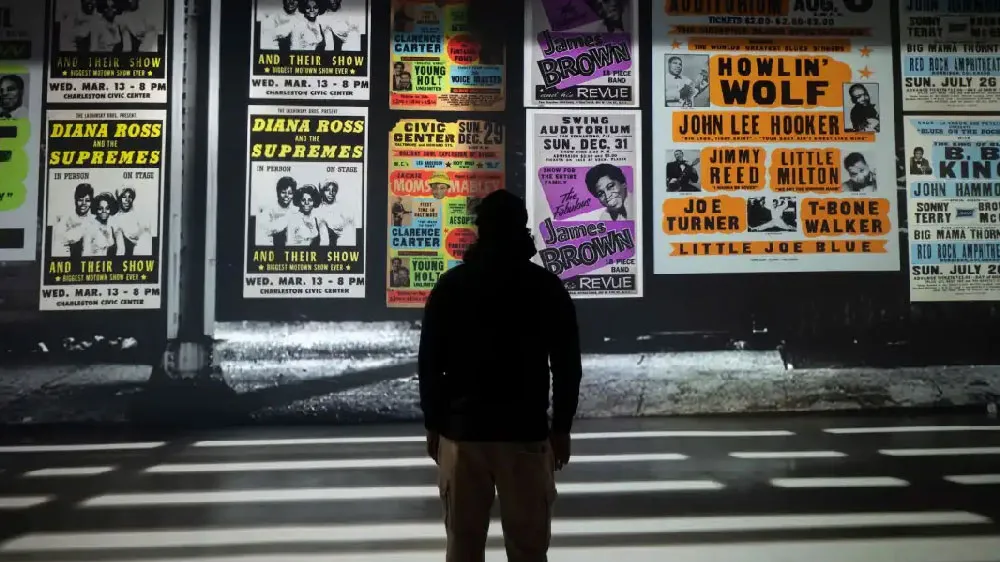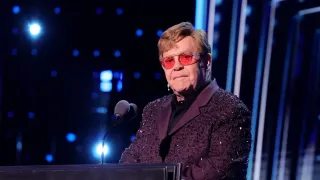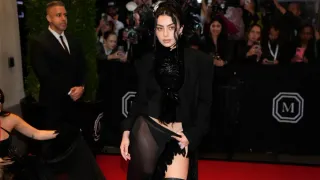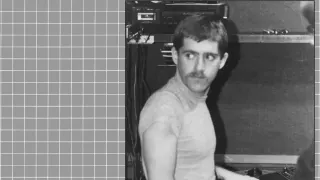December 15, 2014
Jimmy Somerville: A Grander Scale of Thoughts to the Beat
Kilian Melloy READ TIME: 6 MIN.
The days of "It's got a good beat and you can dance to it" are still here. Yet for Jimmy Somerville, his lyrics still must have to have some sort of personal meaning to make his songs speak for him.
It began for the singer/songwriter in the 1980s with Bronski Beat. Just by being true to his beliefs, Somerville saw no need to hide "in the closet" of celebrity or disguise his message of truths in song. Today, there are a score of gay men whose eyes still light up to the sounds of "Smalltown Boy" or "Why?" This blend of activism matched with his distinctive "falsetto" voice and creative energy has taken a new turn with his upcoming CD, titled "Homage."
Arriving just after the holidays and the New Year, "Homage" is his personal tribute and original re-creation of the classic sounds of disco music. Here for The Rage Monthly, Jimmy not only gives an inside look at the structuring of the new music but shares a wee bit of the past of his unique musical heritage in the face of homophobia and AIDS back in the beginning of his career.
How did you choose the title "Travesty" for the first single in the U.S.
off "Homage?"
The lyrics have that kind of social comment in them, where we're at, at the moment. There's a line in the song, "Time to wake up. It's a welfare war." First of all, how wealth is distributed, but also about the welfare of mostly the vulnerable and older people... who are in much more vulnerable-type situations. It's this idea that the governments are suddenly like, "We've never had this ordeal."
That's such a travesty. It really is. That's what it's all about for me.
"Travesty" is this wonderfully original re-creation of the classic disco sound and the lyrics, "Life must mean more than this" are at the core of the song.
Yes, absolutely. I think that "life" is more than this. More than that we can allow people to fall through the cracks and allow people to fall by the wayside. It's the amount of trillions of dollars and billions of pounds, which have been spent on these kind of wars and nuclear warheads and still so many can't afford healthcare. They constantly just use super-glue to put their teeth together. I think that's crazy! Healthcare, dental care; it should be universal. Everyone should have access to it. It's basic stuff.
My politics are not about asking for the "unreal." It's asking for the very basics and that people can get very angry about someone asking for the basics. That's what really makes me sad.
Yes, definitely. I think it's brilliant that you deliver a powerful message in this musical style.
There's a message, more or less in all of the tracks. There's nothing heavy or no kind of ambiguity on the album... I guess the album is about "love." But It's about, why do we even care for love? It's frustrating because love has become a commodity. Love is something that we package. Love is something that we say, that we sell in shops and use in advertisements. Yet, love is the most basic and the most beautiful thing that each of us actually possesses. And yet, we live in such times of fear and uncertainty, that we close down and we just don't actually seem to be able to access love in such a universal way. So, the song "Travesty" is about trying to express that.
Love is not just about when you meet someone and fall in love with one individual person... it's about what you give and what you choose not to, what you can give freely and give selflessly...all that kind of stuff.
My thoughts go back to the original essence in the lyrics of disco. There was a lot of sexual content and here you are, lyrically, putting a grander scale of thoughts to the beat.
For me though, the disco stuff... that was going back to stuff that I was exploring then. Stuff I hadn't listened to, stuff that I equally remember but never bought that I was hunting down. Then, I was bringing it all together.
The bad thing that disco gets is so unfair because it's such an organic and such a kind of giving process. When I was doing this album, it was the way everyone was coming in, the way that they suddenly got involved and got excited and really loved doing it. They became very expressive and very creative in the process. I can imagine that's what it must have been like... back in the day, when people were in the studio and suddenly, you just start to do this groove. Then, everything just starts to key up and then it starts to get into a real hypnotic groove that you just want to dance to. There's nothing better. It's such a kind of primitive expression of freedom and to be able to dance and express that. I think disco does that so well. It really, really does.
Lyrically, there's stuff in disco, which is like every- thing, there's some bad stuff... but there's some just amazing, absolutely fantastic stuff.
Oh yeah. I agree. Musically, you can have anything from strings to saxophone, it's intense.
It's just... as soon as I hear horns and as soon as I hear strings, my little head just goes into heaven. It really does. It just sends me into heaven.
I'm so looking forward to hearing the whole album. Did you manage to write your "own" anthem, aka "I Will Survive" for "Homage?"
There is a song on the album called "Some Wonder" that is just a celebration. It's so uplifting and so light. I really opened it out on this song. That's a big-sounding track. It's a great track.
Excellent. Your time with Bronski Beat was so brief in a way, yet the album "Age of Consent" made such a phenomenal impact for a generation of people. What were your thoughts at the time that "Age of Consent" was released, and what do you think about the lasting power of the songs from it?
Some of the songs are not that strong but the album as a whole and what it represents and where it comes from, it's more about a piece of history. That's the most important part. There are some fun things on it. The duet with Marc Almond as there's two gay men singing and then suddenly in the middle of it comes this old 1950s song, but with another character called "Johnny." Basically, it's these two gay men who are halfway through this song, asking this man to "remember me." Mark is asking this man to "remember" him. So, it's just the two of us asking this man "You don't remember me," and so on. That was fun and that was kind of subversive really.
You basically came out at such a young age, and immediately you were addressing issues that were so closeted and so un-addressed in pop music. I think that's pretty commendable of you.
That was typical of doing what I wanted to do. I was being myself. From the very beginning, when we got together, I had no illusions about what I was going to
do or what was going to happen or who I was going to "kowtow" to. I was basically going to do my own thing. I was going to be as outspoken as I could be. That's all it was about, really.
I just admire that quality. We are still dealing with a killing disease, and we are still dealing with homophobia, bullying and...
Absolutely, there's a soap opera on the TV here and it's very popular with younger people in their twenties and teens. There's a whole new storyline and it's an AIDS story. It's back on the radar. I think people are starting to take notice now that this is still a big issue... it's still a killer. We need to be on top of this.
I agree, I'm looking forward to "twirling" for this album. I have total respect for your musical message and the joy you've brought forth through it.
(laugher) Cool. Nice to talk to you.
Kilian Melloy serves as EDGE Media Network's Associate Arts Editor and Staff Contributor. His professional memberships include the National Lesbian & Gay Journalists Association, the Boston Online Film Critics Association, The Gay and Lesbian Entertainment Critics Association, and the Boston Theater Critics Association's Elliot Norton Awards Committee.

 Copyright Rage Monthly. For more articles from Rage visit
Copyright Rage Monthly. For more articles from Rage visit 





